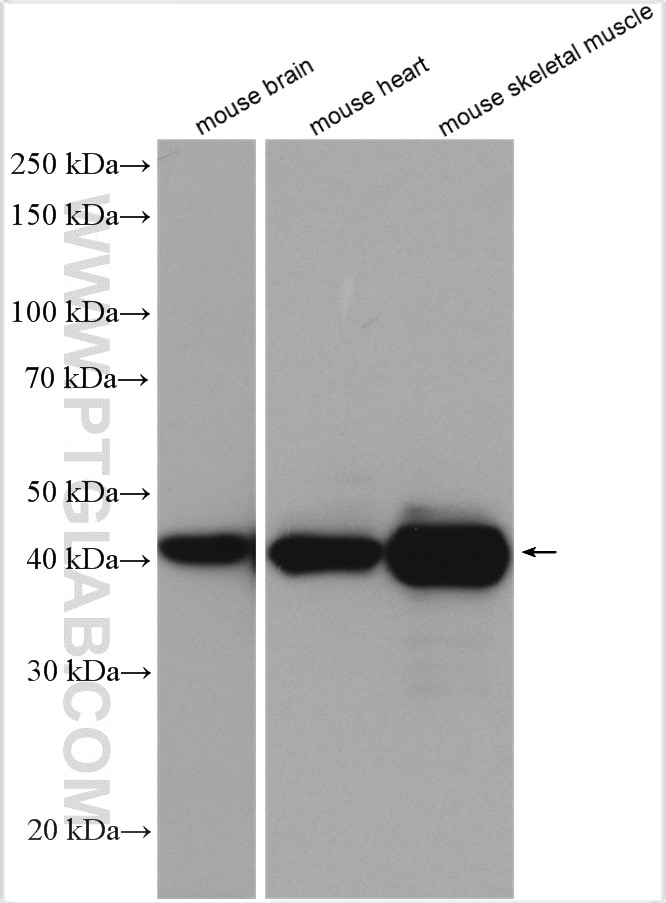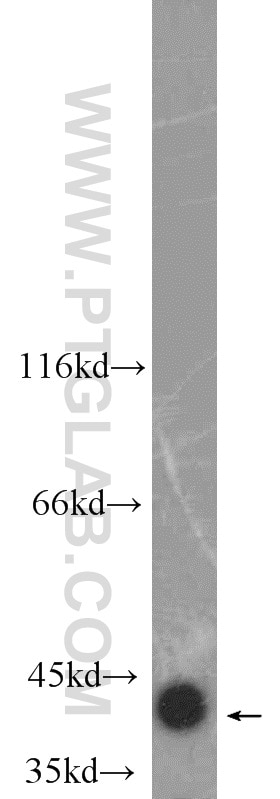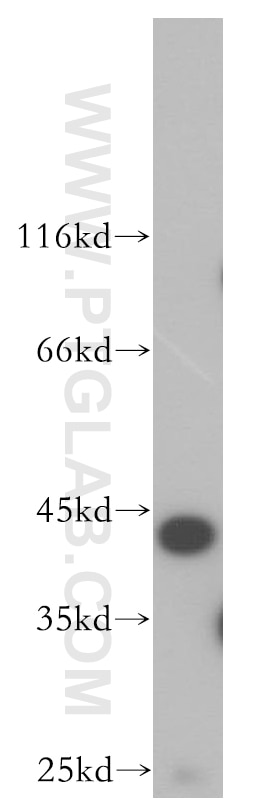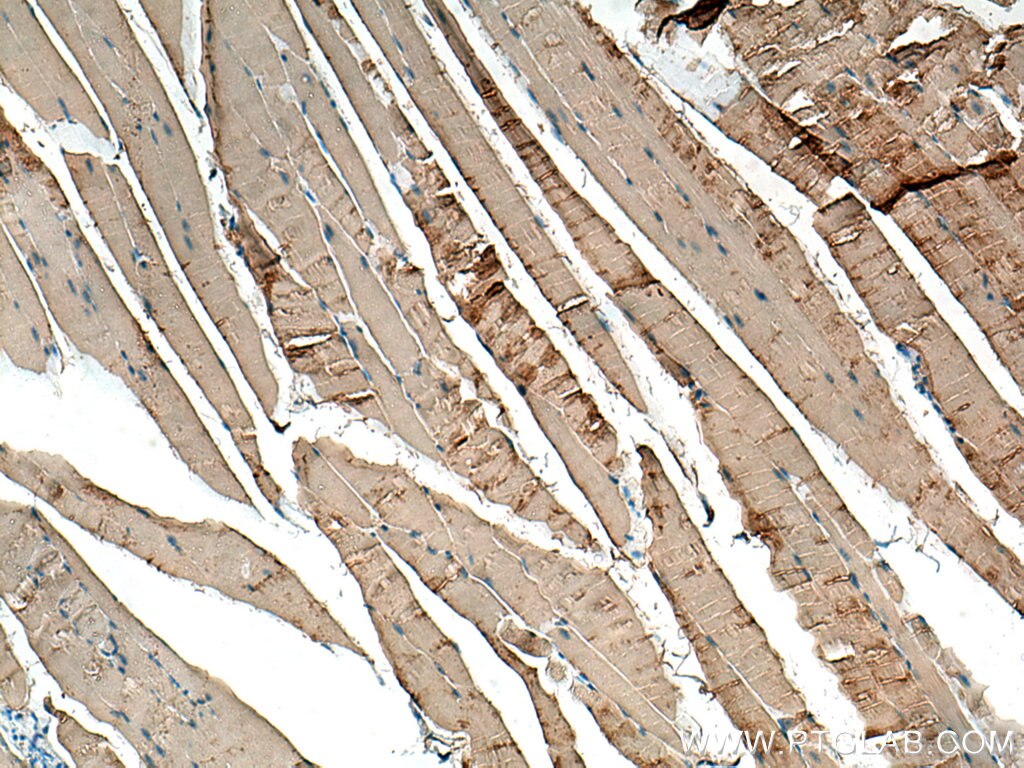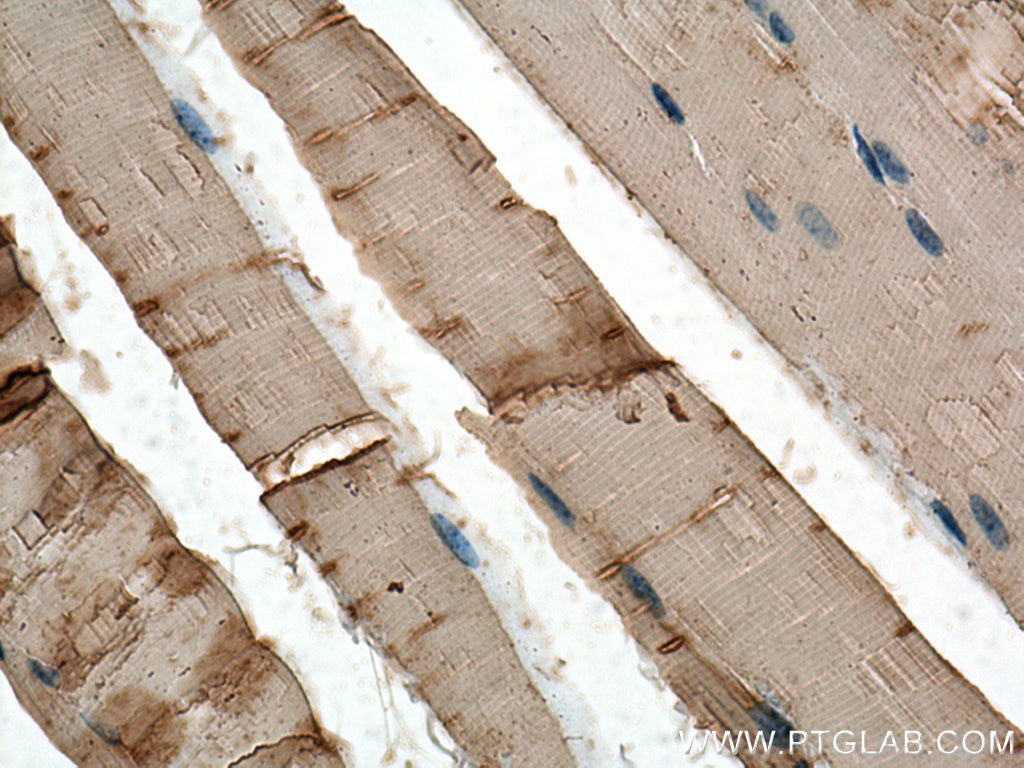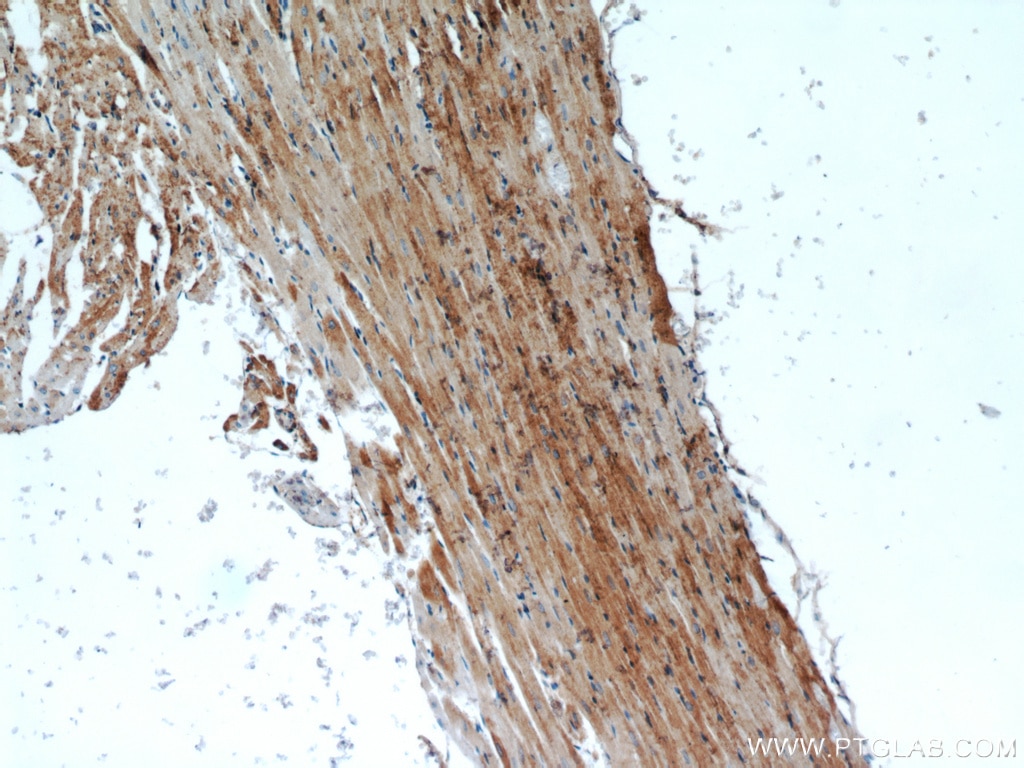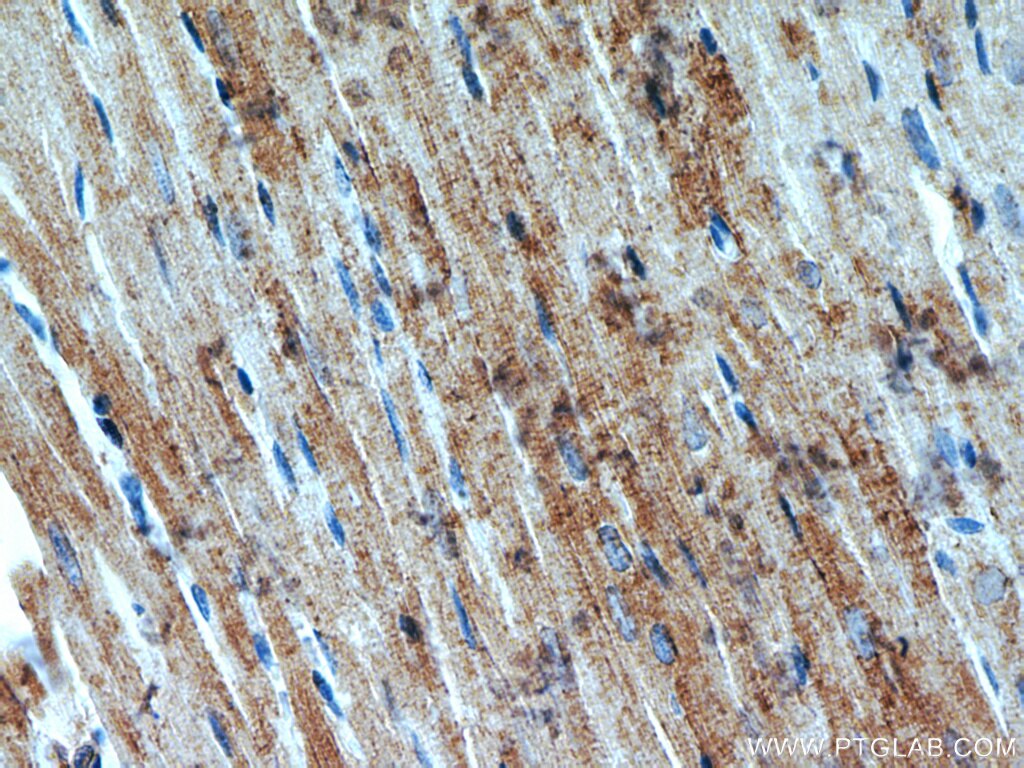Tested Applications
| Positive WB detected in | mouse brain tissue, mouse heart tissue, mouse small intestine tissue, mouse sketetal muscle tissue |
| Positive IHC detected in | mouse skeletal muscle tissue, rat heart tissue Note: suggested antigen retrieval with TE buffer pH 9.0; (*) Alternatively, antigen retrieval may be performed with citrate buffer pH 6.0 |
Recommended dilution
| Application | Dilution |
|---|---|
| Western Blot (WB) | WB : 1:5000-1:50000 |
| Immunohistochemistry (IHC) | IHC : 1:50-1:500 |
| It is recommended that this reagent should be titrated in each testing system to obtain optimal results. | |
| Sample-dependent, Check data in validation data gallery. | |
Published Applications
| WB | See 7 publications below |
| IF | See 1 publications below |
Product Information
18712-1-AP targets CKM-Specific in WB, IHC, IF, ELISA applications and shows reactivity with human, mouse, rat samples.
| Tested Reactivity | human, mouse, rat |
| Cited Reactivity | mouse, rat, bacterial |
| Host / Isotype | Rabbit / IgG |
| Class | Polyclonal |
| Type | Antibody |
| Immunogen |
Peptide Predict reactive species |
| Full Name | creatine kinase, muscle |
| Calculated Molecular Weight | 43 kDa |
| Observed Molecular Weight | 43 kDa |
| GenBank Accession Number | BC007462 |
| Gene Symbol | CKM |
| Gene ID (NCBI) | 1158 |
| RRID | AB_2260650 |
| Conjugate | Unconjugated |
| Form | Liquid |
| Purification Method | Antigen affinity purification |
| UNIPROT ID | P06732 |
| Storage Buffer | PBS with 0.02% sodium azide and 50% glycerol, pH 7.3. |
| Storage Conditions | Store at -20°C. Stable for one year after shipment. Aliquoting is unnecessary for -20oC storage. 20ul sizes contain 0.1% BSA. |
Background Information
CKM, also named CKMM and M-CK, is a member of the ATP:guanido phosphotransferase protein family. It is a cytoplasmic enzyme involved in energy homeostasis and is an important serum marker for myocardial infarction. CKM reversibly catalyzes the transfer of phosphate between ATP and various phosphogens such as creatine phosphate. It acts as a homodimer in striated muscle as well as in other tissues, and as a heterodimer with a similar brain isozyme in the heart. CK isoenzymes play a central role in energy transduction in tissues with large, fluctuating energy demands, such as skeletal muscle, heart, brain, and spermatozoa. CK MB consists of a dimer of nonidentical chains. With MM being the major form in skeletal muscle and myocardium, MB exists in the myocardium, and BB exists in many tissues, especially the brain. Inactivation of creatine kinase by gliotoxin was accompanied by the formation of a 37-kDa form of the enzyme. This oxidized form of creatine kinase was rapidly reconverted to the 42 kDa species by the addition of reducing agents concomitant with restoration of activity. (PMID: 10827185). This antibody is specific to CKM.
Protocols
| Product Specific Protocols | |
|---|---|
| IHC protocol for CKM-Specific antibody 18712-1-AP | Download protocol |
| WB protocol for CKM-Specific antibody 18712-1-AP | Download protocol |
| Standard Protocols | |
|---|---|
| Click here to view our Standard Protocols |
Publications
| Species | Application | Title |
|---|---|---|
Cell Prolif KLF3 promotes the 8-cell-like transcriptional state in pluripotent stem cells. | ||
Mol Pharmacol Naturally Occurring Mutations to Muscle-Type Creatine Kinase Impact Its Canonical and Pharmacological Activities in a Substrate-Dependent Manner In Vitro. | ||
Molecules Oxaloacetate and Ketone Bodies Synergistically Promote Myoblast Differentiation in L6 Cells |

